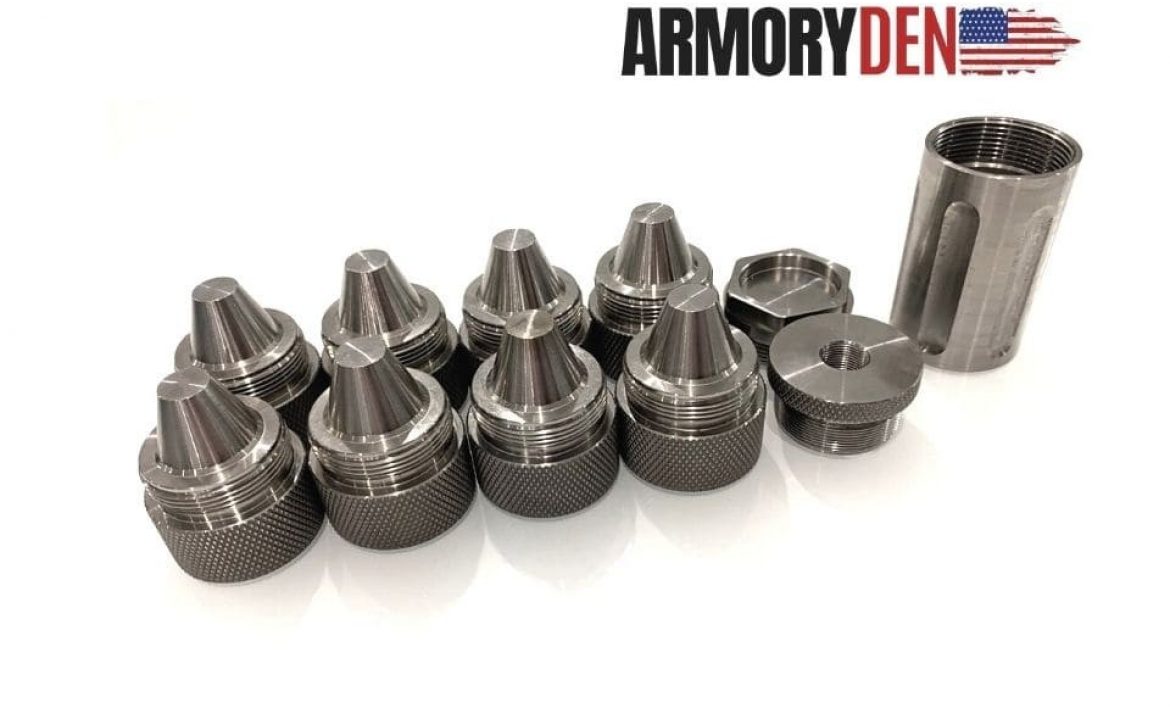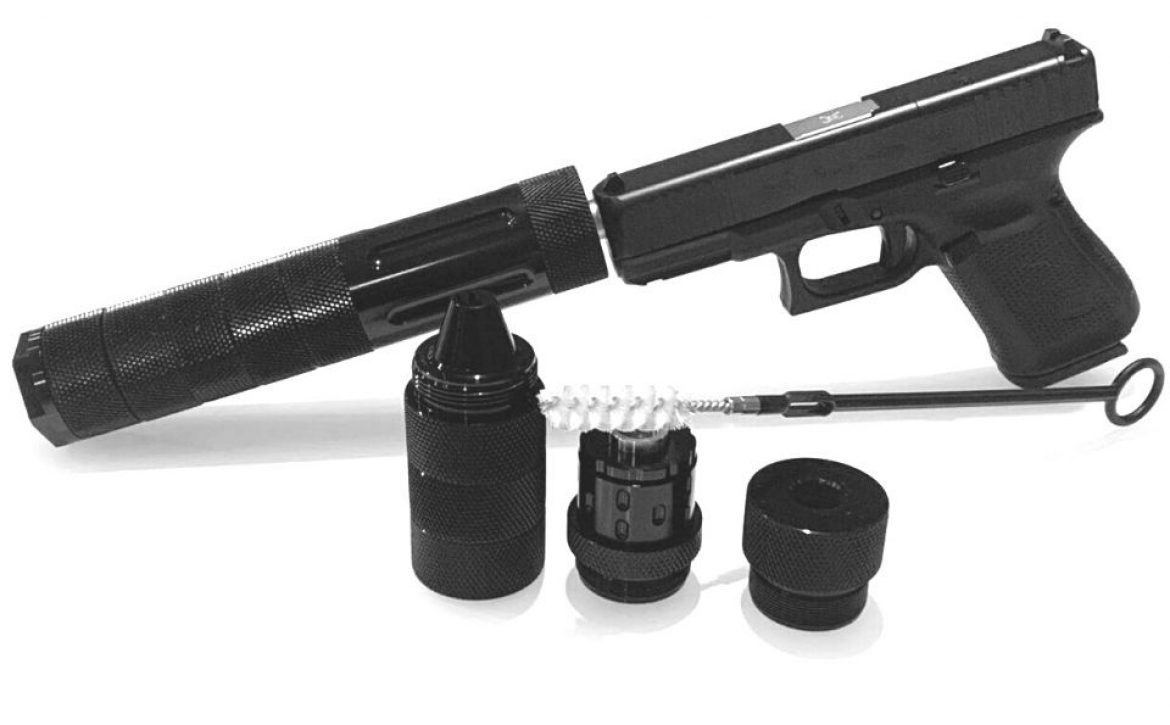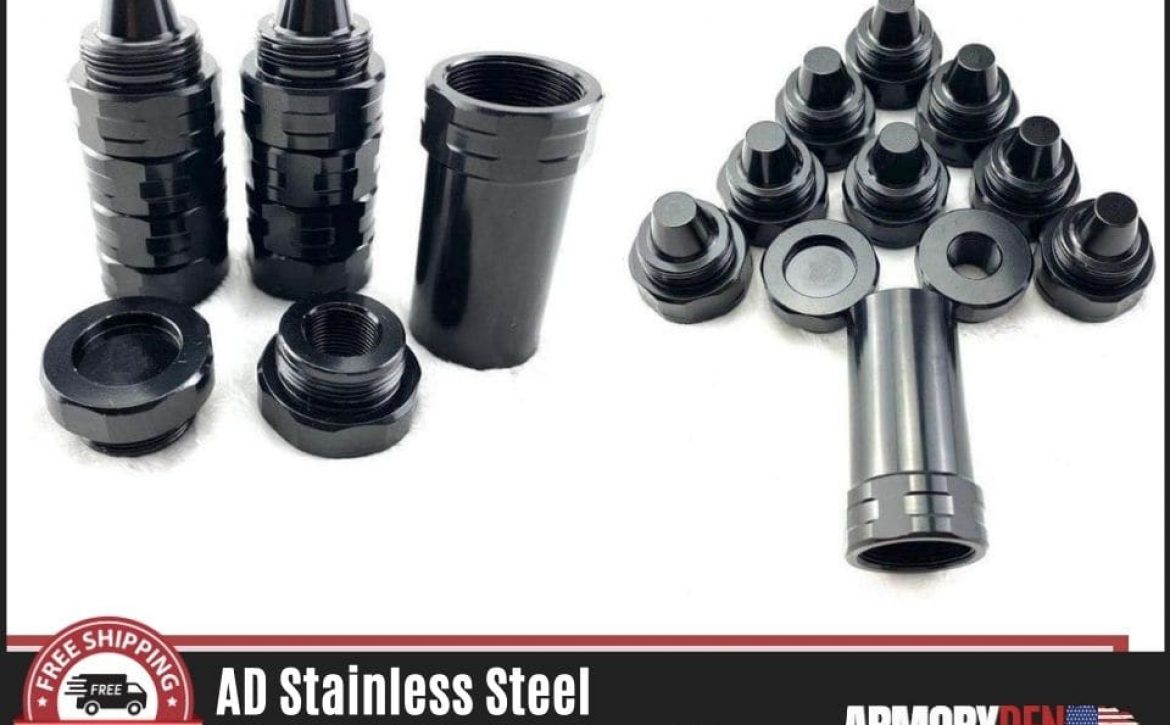Are Solvent Trap Cups Necessary?
Many people question the purposes of solvent trap cups. There is so much information out there coming from many different solvent trap companies that state their solvent trap cups serve a variety of purposes, attempting to compartmentalize solvent trap cup functions in a way that would apply to all solvent trap products, would be futile.
Armory Den can’t speak for other solvent trap companies and has no interest in doing so. What we can do though is give our customers a run down on the purposes our solvent trap cups serve, which will naturally shed some light on the benefits of owning a solvent trap for firearm cleaning purposes.
What Are Solvent Trap Cups?
Armory Den’s solvent trap cups or more specifically, our Dry Storage Cups, have three different styles: Dry Storage Adaptive Cups (modular design), Dry Storage K Cups and Dry Storage Standard Cups. One thing you will notice on every one of our cup designs is they have no center markings or dimples. Our dry storage cups may differ in design, but are similar in that regard.
This is because Armory Den sells solvent traps strictly as a firearm cleaning accessory and does not make recommendations related to modifying our products, nor do we sell our solvent trap products with the intention of them serving any purposes other than Cleaning, Storage and Safety.
Why Are Solvent Trap Cups Necessary?
Cleaning
There is not only one ‘right way’ to use our dry storage cups when it comes to firearms cleaning. The most straightforward cleaning use is to insert however many cups you feel is necessary to allow adequate space at the muzzle size of the solvent trap for trapped solvent to gather. After you complete cleaning, you can disconnect the solvent trap from your barrel and then pour the solvent into another container for recycling or proper disposal. What some do is filter their solvent after trapping it during a cleaning session.
As you will read in the ‘Storage’ section below, this is how our dry storage cups can serve multiple purposes, especially when using them to store small items and cleaning supplies. Filtering used solvent will help remove debris and coarse elements so the solvent can be safely reused without wearing or possibly damaging your firearms during a future cleaning. Some will use storage cups on the sealed end cap side of the solvent trap to store small screen-like filters.
Before cleaning, these little filters can be removed from the dry storage cups towards the side opposite the muzzle and placed on top of a discard container, such as a small water bottle with the cap removed. After removing the filter and replacing the sealed end cap, you can complete cleaning your firearm. When complete, the solvent trap can be removed from the firearm and the solvent can be poured through the filter and into a discard container and reused again during a future cleaning.
Dry Storage K Cups are popular choices when deciding on a solvent trap due to their unique base, which helps tremendously when trapping solvent or transporting more than one type of solvent (i.e. CLP Oil, Lubricant, Rifle Bore Cleaner, etc.). Oil can be poured into each K Cup prior to placing the K Cups into the solvent trap. Different sections between K Storage Cups are sealed off so various lubricants can be transported without spilling into the other compartments.
After using your firearm, the solvent trap can be opened up and the K cups can be carefully removed in a vertical position and placed on a flat surface. Because the K Storage Cups have a flat base, they stand up (like a cup) holding the solvent upright.
Remaining cups that do not have any solvent in them can remain in the solvent trap, then as the firearm cleaning session begins the solvent can be poured out of the K cup into the firearms area or on cleaning materials used to clean the firearm or lubricate the firearm. The remaining cups inside the solvent trap will catch the newly used solvent for filtering or for safe transport or disposal later on.
There’ no wrong way to clean with a solvent trap!
Storage
As mentioned above, you can use dry storage cups, whether they are K Dry Storage Cups, Modular Dry Storage Cups or Standard Storage Cups. Cleaning patches, different types of lubricant, CLP oil, bore oil, and other cleaning related supplies can be sectioned off and stored in the dry storage cups and placed into the solvent trap, ready for their next use.
Some use dry storage cups to store prepper supplies, medications when on a hunting trip over a long weekend with friends, to disposable ear plugs. The fact that our quality solvent traps (especially our adaptive solvent traps) are air tight when closed and sealed. This keeps moisture and other elements out of the cup compartments when they are inside the solvent trap tube and screwed shut.
Safety
Many visitors ask why our solvent traps are made of stronger and relatively more expensive grade 5 titanium, while other solvent traps in our den are made of 6061 T6 and/or 7075 aircraft grade aluminum. Additionally, some of our dry storage cups are made of 304 stainless steel, while our modular solvent trap cups and tubes are made of either grade 5 titanium, stainless steel or 7075 type III hard coat anodized aluminum.
One of the main reasons for this is the different firearm caliber strengths. When transporting firearms with solvent traps already screwed onto the barrel of your firearm or even storing them in your home with the proper solvent trap installed, you add an extra layer of protection or safety.
And Remember...
Remember, if a round is discharged accidentally with a solvent trap installed, the bullet will have a lot of trouble piercing through all of the cups and out of the sealed end cap of the solvent trap. If firearms are higher powered, such as .308, 7.62×39, 300 Blackout or even a 5.56 NATO/.223, it is much safer to go with a titanium solvent trap with stainless steel cups, at a minimum.
We recommend going with a titanium modular solvent trap as each of the cups and the sealed end cap are made of grade 5 titanium, so there’s no way a bullet is passing through all of these layers on an accidental discharge!




